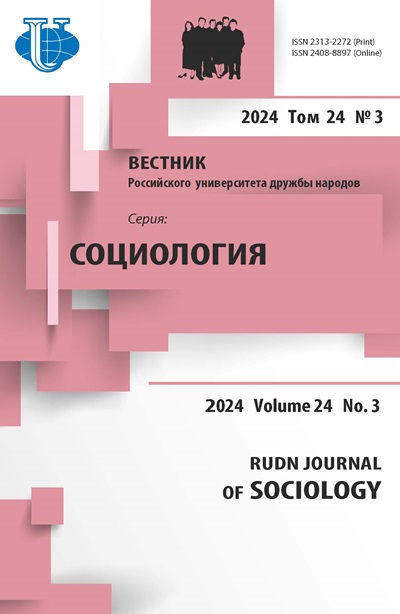Генеральный план развития Аддис-Абебы: программа развития или этнической чистки?
- Авторы: Аберра Д.1
-
Учреждения:
- Университет Аддис-Абебы
- Выпуск: Том 19, № 1 (2019)
- Страницы: 31-39
- Раздел: Современное общество: актуальные проблемы и перспективы развития
- URL: https://journals.rudn.ru/sociology/article/view/20554
- DOI: https://doi.org/10.22363/2313-2272-2019-19-1-31-39
Цитировать
Полный текст
Аннотация
Власти любой страны имеют легитимное право разрабатывать и реализовывать планы регионального развития. В демократических обществах разработка подобных планов и тем более их практическая реализация с необходимостью предполагают консультации с местными сообществами и получение согласия тех групп, жизнь которых подвергнется неизбежным изменениям. Подобные планы не должны разрабатываться в одностороннем порядке и насильно навязываться местным сообществам. Их принуждение к участию в реализации планов развития противоречит фундаментальным правам и свободам человека. Статья призвана ответить на вопрос, можно ли считать так называемый «Объединенный генеральный план развития Аддис-Абебы» планом развития: любой настоящий проработанный план развития предполагает, что задуманный проект не приведет к лишению местных сообществ средств к существованию или к разрушению культурного единства групп, проживающих на данной территории. Автор также выдвигает возможные объяснения нежеланию правительства Эфиопии прислушаться к продолжающимся протестам народности оромо против «Объединенного генерального плана развития Аддис-Абебы». В конкретном контексте регионального развития, тайно нацеленного на этническую чистку, правительство не может открыто декларировать намерение уничтожить культурную идентичность определенной группы, но таковое можно обнаружить в соответствующих долгосрочных политических мерах, предпочитаемых правительством стратегиях и фактах действительности. В статье с исторической точки зрения рассмотрена долгосрочная последовательная политика правительства Эфиопии и факты, позволяющие утверждать наличие у государства стремления уничтожить идентичность народности оромо в Аддис-Абебе и ее пригородах. Если оромо выселят с территорий их предков, их экономическая жизнь, социальные сети, язык, культурные традиции и нормы будут утрачены и, согласно «Объединенному генеральному плану развития Аддис-Абебы», оромо как культурная группа с особой этнической идентичностью исчезнет из районов, где этот план будет реализован.
Об авторах
Дегефа Аберра
Университет Аддис-Абебы
Email: kaberra@yahoo.com
кандидат социологических наук, доцент юридической школы Университета Аддис-Абебы А/я 1176, Аддис-Абеба, Эфиопия
Список литературы
- Abba Antonios Albertos. The Apostolic Vicariate of Oromo [Galla], A Capuchin Mission in Ethiopia (1846-1942). Addis Ababa; 1998.
- Alamaayyoo Haayilee. Sirna Gadaa Siyaasa Oromoo Tuulama. Finfinnee; 2007.
- Benti Getahun. Addis Ababa: Migration and the Making of a Multiethnic Metropolis, 1941-1974. Asmara; 2007.
- Davidson L. Cultural Genocide. New Brunswick; 2012.
- Draft Convention on the Crimes of Genocide, UN ESCOR. UN Document E/447(1947).
- Eshetu Erena. Ye Oromo taarik kaxint iske 1890 wochu macarasha. Finfinnee; 2009.
- Holocomb, Sisay Ibsa. Invention of Ethiopia: The Making of Dependent Colonial State in Northeast Africa. Asmara; 1990.
- Kingston L. The destruction of identity: Cultural genocide and indigenous peoples. Journal of Human Rights. 2015; 14.
- Lemkin R. Axis Rule in Occupied Europe. Washington; 1944.
- Markakis J. Ethiopia. The Last Two Frontiers. Woodbridge; 2011.
- Merera Gudina. Ethiopia: From Autocracy to Revolutionary Democracy: 1960s-2011. Addis Ababa; 2011.
- Morsink J. Cultural genocide, the Universal Declaration, and minority rights. Human Rights Quarterly. 1999; 21 (4).
- Moses A.D. Empire, colony, genocide: Key words and the philosophy of history. Empire, Colony, Genocide, Conquest, Occupation, and Subaltern Resistance in World History. New York; 2009.
- Nersessian D. Rethinking cultural genocide under international law, human rights dialogue: Cultural rights. http://www.carnegiecouncil.org/publications/archive/dialogue/2_12/section_ 1/5139.html.
- Pankhurst R. State and Land in Ethiopian History. Addis Ababa; 1966.
- Roos S.R. Development genocide and ethnocide: Does international law curtail development induced displacement through prohibition of genocide and ethnocide? Center for Human Rights and Humanitarian Law. 2002; 9 (3).
- Silina E. Genocide by attrition. International Affairs Working Papers. San Francisco; 2008.
- Strauss S. Contested meanings and conflicting imperatives: A conceptual analysis of genocide. Journal of Genocide Research. 2001; 3 (3).
- Tinker G.E. Missionary Conquest: The Gospel and Native American Cultural Genocide. Minneapolis; 1993.
- Tronvoll K. War and the Politics of Identity in Ethiopia: The Making of Enemies and Allies in the Horn of Africa. New York; 2009.
- Vaughan S., Tronvol K. (2003). The Culture of Power in Contemporary Ethiopian Political Life. Sida Studies; 2003.
- Veracini L. Settler Colonialism: A Theoretical Overview. London; 2010.
- Wolfe P. Settler colonialism and the elimination of the native. Journal of Genocide Research. 2006; 8 (4).














